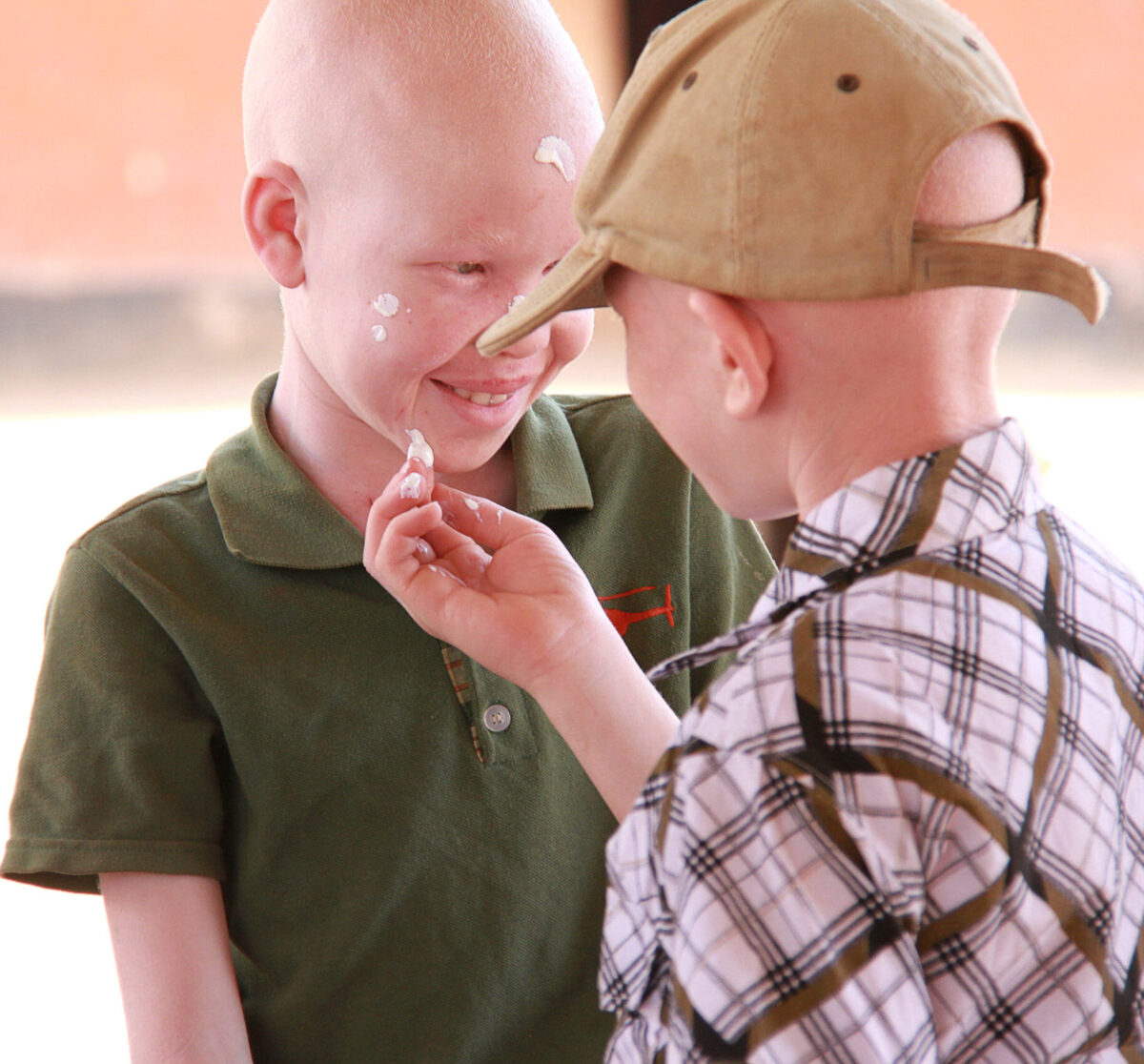Climate Change & Albinism
Climate change poses an existential risk for people with albinism. Across the African continent, a staggering 90% are estimated to lose their lives by age 30 due to skin cancer. Deforestation directly impacts people with albinism – as the tree canopy disappears, they are more exposed to the sun’s harmful rays. The United Nations (UN) also reports that people with albinism frequently work outdoors due to early dropout from school from lack of reasonable accommodation and bullying. With a majority of people with albinism living a subsistence lifestyle outdoors, the impact of climate change on their health and in consequence, their socio-economic status, has become dire.

Comprehensive research highlights that the lack of crucial health support plays a pivotal role in the alarming death rate due to skin cancer. From the omission of sunscreen in the national list of essential medicines to the dearth of health information and skin cancer treatments, people with albinism remain highly vulnerable. These challenges are intensified by the escalating levels of ultraviolet radiation attributed to our changing climate, and people with albinism must be considered a group at risk in global climate discourse. Their inclusion in discussions on disability and climate change, especially at significant platforms such as the Conference of Parties (COP) to the UN Convention on Climate Change and national strategies for the realization of Sustainable Development Goal 13 to “Take urgent action to combat climate change and its impacts“, is essential.
AAN’s Proactive Response
Training and Capacity Development: Through its workshops and learning fora, AAN equips albinism organizations with advocacy skills to facilitate the inclusion of people with albinism in climate change discourses as it relates to people with disabilities and groups at risk.
Advocacy in Action: AAN highlights the significant danger of climate change to the rights to life, health, and the overall economic and social rights of people with albinism in its engagement with the African Union (AU) and the UN. Through collaborative dialogues with the UN Expert on Albinism and the African Commission on Human and Peoples’ Rights (ACHPR), strides are being made in the inclusion of these issues in climate change discourse.
Building Bridges: AAN is working to build bridges with organizations addressing climate change so that the particular issues of people with albinism receive greater visibility in climate change discourse. These efforts aim to not only include the concerns of people with albinism in more mainstream climate change debates, but look to build broader, more inclusive and resilient climate change movements.
Opportunity
Despite recent attention to the impacts of climate change on people with albinism, more action is needed to address the alarmingly early mortality rates of people with albinism. Additional efforts must ensure that albinism groups have the tools and training to gather pertinent data and ensure their voices are heard in climate change dialogues, especially as they relate to vulnerable and at-risk populations. In addition, albinism leaders need access to spaces where climate change is discussed, and together with the movements of people with disabilities and other groups at risk, must bring their challenges to the forefront. By integrating their issues into broader discourse on climate change, we can ensure that people with albinism, particularly in rural areas, receive the visibility they deserve and unite across movements to implement the recommendations informed by their oft-neglected experience of climate change.
Resources
- Climate Change and Albinism Stories: Joselito, Nnene, Simon
- Petition to the WHO: Impact Report for IAAD 2025 (French, English, Portuguese)
- Report from the UN Independent Expert on albinism and climate change
- Watch: Climate change and persons with albinism (UN Expert on Albinism)
- Global Impact of climate change on persons with albinism: A human rights issue by Astle I, et al.
- Event: The Impact of Climate Change on the Rights of People with Albinism in Africa: A Human Rights Concern
- The Forgotten Ones: The Impact of Climate Change on the Health and Well-being of Persons with Albinism